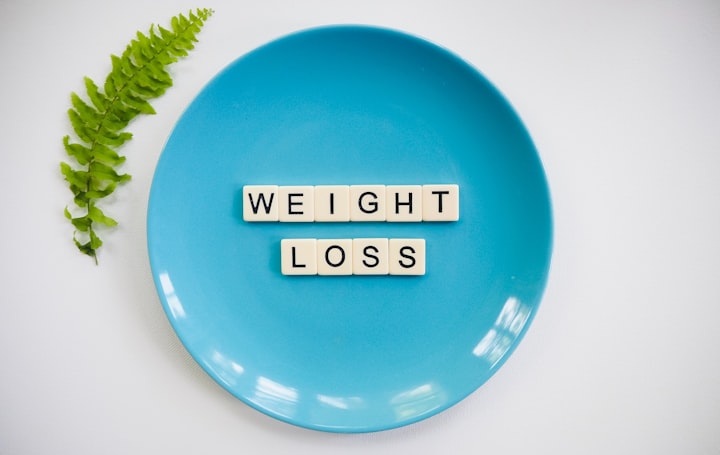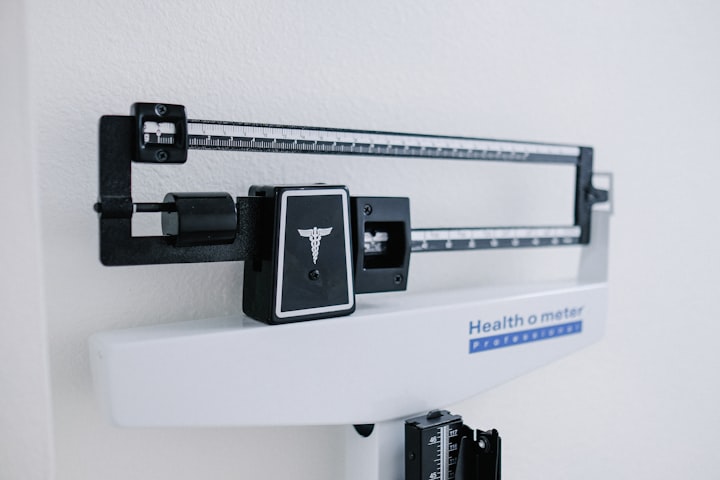Lose Weight without Exercise: A Guide to the Right Weight Loss Diet
Losing weight can be a daunting task for many. The thought of having to exercise for long hours can be a major source of discouragement for many. But you don’t have to worry anymore. This blog will show you how you can lose weight without exercise, by following a proper weight loss diet.

Losing weight can be a daunting task for many. The thought of having to exercise for long hours can be a major source of discouragement for many. But you don’t have to worry anymore. This blog will show you how you can lose weight without exercise, by following a proper weight loss diet.
Introduction to Weight Loss Diets
A weight loss diet is a diet that helps you lose weight by reducing your calorie intake. This diet is designed to help you achieve your weight loss goal by providing you with the right nutrition and helping you make healthier food choices. It is important to note that weight loss diets should not be confused with crash diets or other unhealthy fad diets. A healthy weight loss diet should include nutritious foods that are low in calories and provide the body with essential nutrients.
Click here to transform your body and life
In addition to helping you lose weight, a weight loss diet can also help you maintain a healthy weight. It can help you reduce your risk of developing chronic diseases such as heart disease, diabetes, and high blood pressure. It can also help you improve your energy levels and overall health.
Benefits of Having a Weight Loss Diet
There are many benefits to following a weight loss diet. Here are some of the most important benefits:
Improved Health: By following a weight loss diet, you can reduce your risk of developing chronic diseases. It can also help you improve your overall health.
Increased Energy Levels: A weight loss diet can help you feel more energized and alert. This can help you perform better at work and in other activities.
Weight Loss: A weight loss diet can help you lose weight in a healthy and sustainable way.
Improved Self-Esteem: Losing weight can help you feel more confident and positive about yourself.
Reduced Risk of Illness: Following a weight loss diet can help you reduce your risk of developing illnesses and diseases.
Types of Weight Loss Diets
There are many different types of weight loss diets. Here are some of the most popular ones:
Low-Fat Diet: This diet focuses on eating low-fat foods such as lean meats, low-fat dairy products, and fruits and vegetables.
Low-Carb Diet: This diet focuses on reducing your intake of carbohydrates such as bread, pasta, and other grain-based foods.
Intermittent Fasting: This diet involves fasting for certain periods of time, such as 12 to 16 hours, and then eating during the remaining hours.
Mediterranean Diet: This diet focuses on eating foods that are typically found in the Mediterranean region such as fruits, vegetables, legumes, nuts, and olive oil.
Paleo Diet: This diet focuses on eating foods that our ancestors would have eaten, such as lean meats, fish, fruits, and vegetables.
Click here to transform your body and life
Factors to Consider When Choosing a Weight Loss Diet
When choosing a weight loss diet, there are several factors that you should consider. Here are some of the most important factors:
Your Health: Make sure that the diet is healthy and suitable for you. Talk to your doctor before starting a new diet.
Your Goals: Consider your weight loss goals and choose a diet that is suitable for them.
Your Lifestyle: Choose a diet that is suitable for your lifestyle. For example, if you have a busy lifestyle, choose a diet that is easy to follow.
Your Budget: Consider your budget and choose a diet that fits your budget.
Your Taste: Choose a diet that you enjoy eating. You are more likely to stick to the diet if you enjoy the food.
The Pros and Cons of the Different Types of Weight Loss Diets
Each type of weight loss diet has its own pros and cons. Here are some of the pros and cons of the different types of weight loss diets:
Low-Fat Diet:
Pros: This diet can help you reduce your intake of unhealthy fats, which can help reduce your risk of heart disease. It can also help you lose weight in a healthy way.
Cons: This diet can be difficult to stick to, as it can be hard to get enough protein and other essential nutrients.
Low-Carb Diet:
Pros: This diet can help you lose weight quickly, as it reduces your intake of carbohydrates. It can also help reduce your risk of developing certain diseases.
Cons: This diet can be difficult to stick to, as it can be hard to get enough essential vitamins and minerals.
Intermittent Fasting:
Pros: This diet can help you lose weight quickly, as you are only eating during certain hours. It can also help improve your focus and energy levels.
Cons: This diet can be difficult to follow, as it can be hard to stick to the fasting schedule.
Mediterranean Diet:
Pros: This diet can help you lose weight in a healthy way, as it focuses on eating healthy and nutritious foods. It can also help reduce your risk of developing certain diseases.
Cons: This diet can be expensive, as it focuses on eating a variety of healthy foods.
Paleo Diet:
Pros: This diet can help you lose weight quickly, as it focuses on eating healthy foods. It can also help improve your energy levels and focus.
Cons: This diet can be difficult to stick to, as it can be hard to find paleo-friendly foods.
Meal Planning for Weight Loss Diets
Meal planning is an important part of following a weight loss diet. Meal planning can help you stay on track and achieve your weight loss goals. Here are some tips for meal planning:
Make a list of healthy foods: Make a list of healthy foods that you enjoy eating. This will make it easier to plan your meals.
Plan your meals in advance: Plan your meals for the week in advance. This will help you stay on track and make sure you are eating healthy foods.
Make meals ahead of time: Make meals ahead of time and store them in the fridge or freezer. This will make it easier to grab a healthy meal when you are busy.
Stock your pantry: Stock your pantry with healthy foods such as nuts, seeds, and dried fruits. This will make it easier to make healthy meals when you are short on time.
Prepare healthy snacks: Prepare healthy snacks such as fruits, nuts, and yogurt to help you stay on track.
How to Stick to a Weight Loss Diet
Sticking to a weight loss diet can be difficult. Here are some tips for sticking to a weight loss diet:
Set realistic goals: Set realistic goals that you can achieve. This will help you stay motivated and on track.
Track your progress: Track your progress by writing down what you eat and how much you exercise. This will help you stay on track and motivated.
Find a support system: Find a support system of friends and family who can help you stay motivated and on track.
Avoid unhealthy temptations: Avoid unhealthy temptations such as junk food and sugary drinks.
Reward yourself: Reward yourself for achieving your goals. This will help you stay motivated and on track.
Finding Motivation to Lose Weight without Exercise
It can be difficult to stay motivated to lose weight without exercise. Here are some tips for finding motivation to lose weight without exercise:
Set small goals: Set small, achievable goals that you can reach. This will help you stay motivated and on track.
Track your progress: Track your progress by writing down what you eat and how much you exercise. This will help you stay on track and motivated.
Find a support system: Find a support system of friends and family who can help you stay motivated and on track.
Find healthy activities: Find activities such as walking and yoga that you enjoy. This will help you stay motivated and active.
Reward yourself: Reward yourself for achieving your goals. This will help you stay motivated and on track.
Tips for Successful Weight Loss without Exercise
Losing weight without exercise can be difficult. Here are some tips for successful weight loss without exercise:
Eat healthy: Make sure to eat healthy foods such as fruits, vegetables, lean proteins, and whole grains. This will help you get the nutrients you need and stay on track.
Avoid unhealthy temptations: Avoid unhealthy temptations such as junk food and sugary drinks.
Drink plenty of water: Drinking plenty of water can help you stay hydrated and feel full.
Get enough sleep: Getting enough sleep can help you stay energized and focused.
Find healthy activities: Find activities such as walking and yoga that you enjoy. This will help you stay motivated and active.
Conclusion
Losing weight without exercise is possible. By following a healthy weight loss diet and sticking to it, you can successfully lose weight without exercise. Make sure to consider your health, goals, lifestyle, budget, and taste when choosing a weight loss diet. Also, make sure to plan your meals in advance, stock your pantry with healthy foods, and find healthy activities that you enjoy. Finally, reward yourself for achieving your goals to stay motivated and on track.
About the Creator
Paul
Are you tired of struggling with your weight and feeling like you can't make progress? I'm here to help you turn things around. As a weight loss enthusiast and health advocate, I'm passionate about sharing tips, tricks, and insights.





Comments
There are no comments for this story
Be the first to respond and start the conversation.